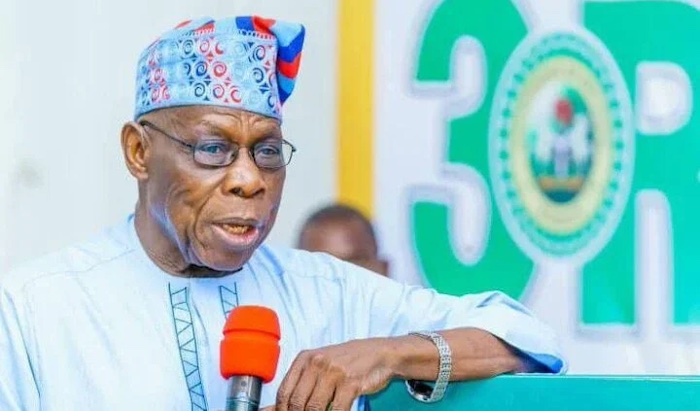Africa
The Return Of Nigeria’s Pseudo-saviours -By Kene Obiezu
Politics can be a fair, straightforward game, played by responsible, courageous and constructive politicians. It is only politicians that put patriotism above their personal pockets and aggrandizement that can add value to the country.

For the average Nigerian politician, to be out of power is to be jobless, if not absolutely useless. The amount of worthlessness being out of power evokes in Nigerian politicians explains why they would do anything to hold on to political power or at least maintain some relevance.
To remain relevant, they usually do anything and everything.
As the treacherous transience of power hastens the twilight of their time in office, they take measures to stay put. They sacrifice their political parties, allies, public funds, and everything else just to hang on. Often, they don’t care who goes goes down or what is irreparably broken to, as long as they perpetuate themselves in power.
Between 1976 and 1979, Olusegun Obasanjo served as Nigeria’s military president. He had come in through a military coup via a military coup. He was ruthlessly disposed by a military coup but stuck around until the Abacha military junta swept him to prison in 1995.
Having been released in 1998 as Nigeria sought the painful transition into a democracy, fortune and perhaps fate swept Obasanjo to the dizzying heights of Aso Rock in 1999. He clung on through two disputed elections to become president until 2007.
Having moved from prison to the presidency and having been in a vantage position of being able to compare the chills of being locked out of power to the comfort of strutting the corridors of power, Obasanjo did all he could to foster his now infamous third term agenda. His failure was a vital victory for Nigeria’s nascent democracy.
Nigerian politics is as cut-throat as they come. Triumphal and gloating, to be out of office is to face all manner of humiliation. For those who have tasted political power, it is as close to death as it comes.
It is what appears to currently afflict some politicians in Nigeria, who have become especially and uncharacteristically vocal about the perceived demise of the country. Of this lot,Nasir El-Rufai,Rotimi Amaechi and Abubakar Malami stand out.
It is a central tenet of political participation that a political person or a politician as the case may should be able to form an opinion, agree or disagree as the case may be. This ability to agree or disagree is at the heart of voter power, which culminates in a vote. To cast a vote for one person is to agree with that person. But it is also to disagree with others.
Indeed, the power to agree underpins
So, Amaechi, El-rufai and Malami have a right to disagree. But what they cannot and should not do is to attempt to sabotage the government, and there is a pattern.
For El-Rufai especially, it is déjà vu. Since the transience of political power swept him off his perch as Governor of Kaduna State in 2023, he took only a very short restless break but has since returned with vengeance and is eager to make up for lost time.
He clearly does not think it is a major indictment on his part that many in Kaduna State, where he was governor for eight years are dizzy with relief that he is no longer governor and that his successor is putting in an excellent shift as governor.
El-rufai has since returned to the role he played in the country between 2007 and 2015. In that time, after enjoying heavy influence under Olusegun Obasanjo between 2003 and 2007, he quickly found himself on the fringes in 2007. His response was to begin a venomous and vitriolic campaign against the administration of Umaru Musa Yar’adua and later that of Goodluck Ebele Jonathan. He even spent some time on self-imposed exile painting the country and government black abroad, after the Economic and Financial Crimes Commission (EFCC) wanted him for economic malfeasance.
His campaign of calumny against the then government of president Goodluck Jonathan abruptly ended when he became governor, only to put in a disastrous performance in eight years.
Now, freshly rested and recovered from the shock of being excluded from President Tinubu’s ministerial cabinet in 2023,El-Rufai has taken to taking potshots at the president and the government while rallying Nigerians to oust the government in 2027. Nigerians will do well to ignore him.
To achieve this, he has recruited the equally disgruntled Abubakar Malami, who was Attorney-General of the Federation, Rotimi Amaechi, who was minister of transportation and a handful of others. Their poor strategy of predicting doom and gloom for the country under the current administration rests disproportionately on the fact that the common bone they have to pick with the current administration is that they have left in the cold after years of wielding political power which they failed to use for the good of Nigerians.
Politics can be a fair, straightforward game, played by responsible, courageous and constructive politicians. It is only politicians that put patriotism above their personal pockets and aggrandizement that can add value to the country.
Nigerians must learn to be extremely wary of those politicians whose sudden affection for them and their country comes from the cold fire place of political obscurity and irrelevance.
Kene Obiezu,
keneobiezu@gmail.com

























